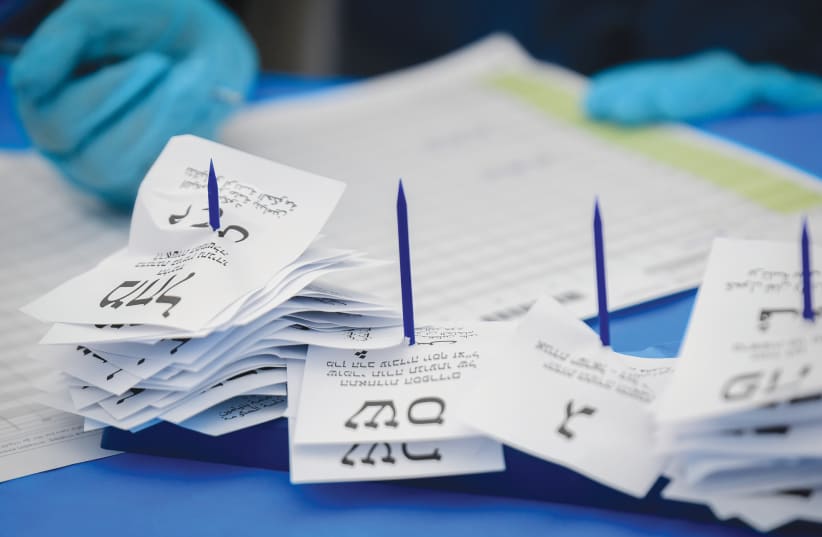We see failure and under-performance in one area after another. Take just a few examples. The COVID pandemic aside, our healthcare infrastructure is totally inadequate and under-resourced. We lack hospital beds and, unless one is prepared to pay privately, one can wait weeks, if not months, to see a specialist or have many tests done. Our education system is deteriorating, too. Among other issues, our international scores are declining, and we do not attract the best teachers because the pay is so low. Plus, why in our supposedly Start-Up Nation, do we still have such massive bureaucracy in seeking out government services? I’m sure that every reader can create their own list of how their government is not serving them.
Israel did not even have a budget last year. And now, four national elections in two years? Government seems disconnected, answerable to no one, certainly not to the average citizen. What kind of normative country runs itself thus way? Is our government one of which we can be proud?
We, the people of Israel, deserve better government. For God’s sake, we deserve a government, let alone a better one.
The problem is not just Prime Minister Benjamin Netanyahu and his woes. It is the system that is broken. Its failure has shown itself repeatedly in our history.
Already in the 1950s, David Ben-Gurion asserted that “the national proportional electoral system makes a fraud of democracy and causes excessive division... in a nation that, more than any other, needs maximal unity.” Our current electoral system promotes the appearance of one politician after another to create a new party that will bring the redemption. Each leader asserts, “Only I can get this done.” These folks, even if they get into Knesset, fizzle and fade shortly thereafter, not achieving what they promised.
THE PROBLEM is that our electoral system supports and encourages this kind of behavior. Elected officials have no personal loyalty to the voters. Their accountability is only to party apparatchiks. The current system is divisive, as it prompts each sector to vote for only its group, thus creating a zero-sum game environment. The multiplicity of parties enables each tiny party to extort money or even evade the law for their fealty to a coalition. And it enables parties to sliver themselves even further after they are in Knesset, like the fission of microscopic amoebae.
In our system, the citizen has no one to call; to protest the shuttering of business, to protest a stubborn bureaucrat, to protest tax increases, to protest lockdowns, etc. There is not even a phone number, let alone someone on the other side who cares and is prepared to act. Street demonstrations get a lot of press but are meaningless and ineffective. Because at the end of the day, who cares? There is no way to throw out a “bad” Knesset member.
We need to institute 60 single-member electoral districts. Sixty members of Knesset would continue to be elected as today, by party list. But the 60 others would be voted in by name with a separate ballot. This latter method is key. While they will be affiliated with parties, the representatives will be elected only if they work hard to get every possible vote in their district – which they can accomplish only by working together with people of other parties and sectors as well. They will know who their voters are, personally. And once elected, a representative knows that s/he must be responsive to district voters or s/he will not be elected again.
This approach will also bring stability to government. For example, what district representative who won by a narrow margin will want new elections again in six months? It will reduce the number of parties, as fringe parties would not be able to capture district seats, nor would ephemeral, splinter parties. Single-member districts also tend (though there are exceptions) to drive politics to moderation, rather than to the extreme.
There are many other nuances and benefits of such a system that space here does not permit further detail. But Israel is perhaps the only Western-style democracy that does not have electoral districts. While we are a smart country that always thinks it knows better, in the matter of electoral districts, we do not.
We do not need to elect a messiah. We merely need to vote now only for a party that will commit to install a better electoral system.
The writer is author of Accountability to the People: Instituting Single-Member Electoral Districts for Israel’s Knesset (Tel Aviv: Citizens’ Empowerment Center in Israel, 2007).
